
Group dynamics online presentation
Group dynamics concern how groups form, their structure and process, and how they function. Group dynamics are relevant in both formal and informal groups of all types. In an organizational setting, groups are a very common organizational entity and the study of groups and group dynamics is an important area of study in organizational behavior.

PPT Chapter 1 Organizational Behavior and Opportunity PowerPoint Presentation ID903740
Group dynamics play a crucial role in the success and effectiveness of any group or team. Understanding the relationship between the different components within a group is essential for effective collaboration, decision-making, and overall group performance. The objective of this study is to explore the perception of students of the dynamics of.
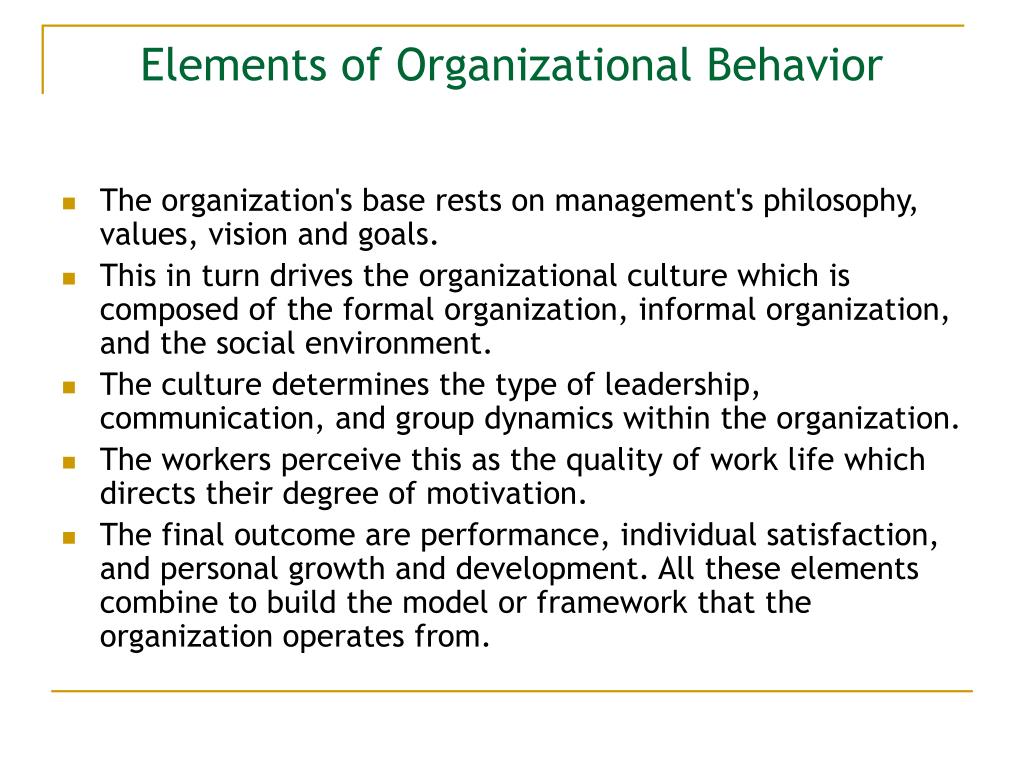
PPT Organisational Dynamics PowerPoint Presentation, free download ID685660
Another example of the validity of the group development model involves groups that take the time to get to know each other socially in the forming stage. When this occurs, groups tend to handle future challenges better because the individuals have an understanding of each other's needs. Figure 9.2 Stages of the Group Development Model.
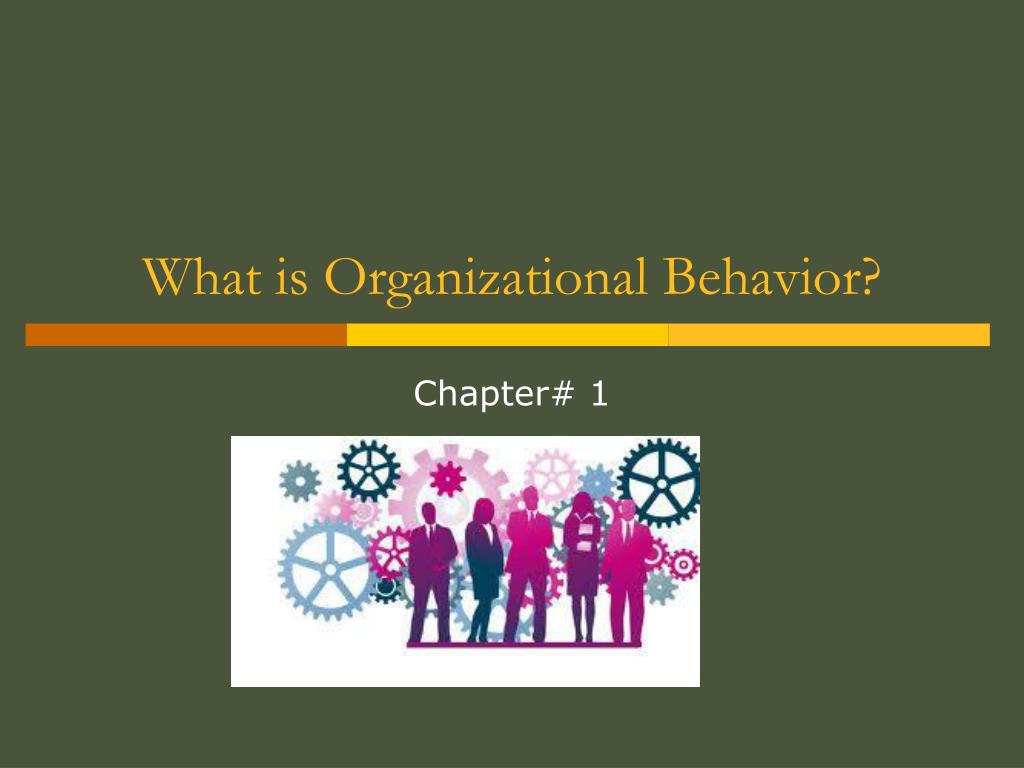
PPT Organizational Behavior PowerPoint Presentation, free download ID6305571
When dynamics are positive, the group works well together. When dynamics are poor, the group's effectiveness is reduced. Problems can come from weak leadership, too much deference to authority, blocking, groupthink and free riding, among others. To strengthen your team's dynamics, use the following strategies: Know your team.
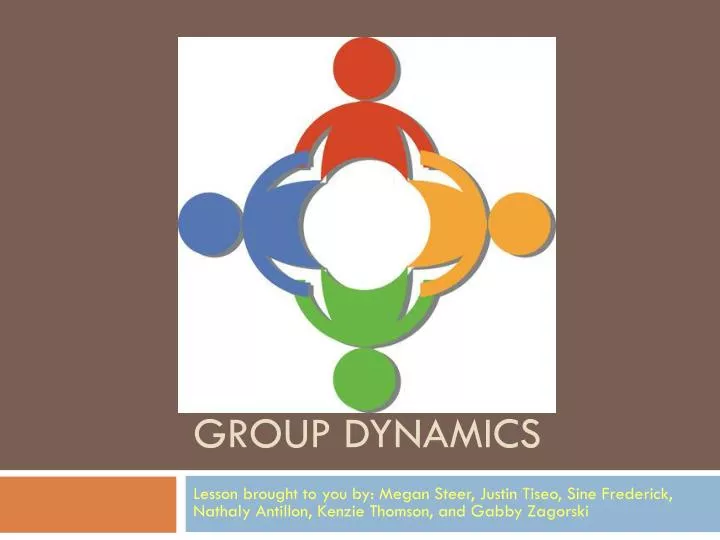
PPT Group Dynamics PowerPoint Presentation, free download ID1923035
The term 'group dynamics' means the study of forces within a group. Since human beings have an innate desire for belonging to a group, group dynamism is bound to occur. In an organization or in a society, we can see groups, small or large, working for the well-being. The social process by which people interact with one another in small.

Group Dynamics l Group Formation 5 Stages in Organisational Behaviour I Stages of Group
About This Presentation Title: Organizational Behavior: Group Dynamics and Teamwork Description: Two or more freely interacting people (Interdependent -interact and. Propinquity. Needs, Functions and Goals. Interaction. Balance Theory. Exchange Theory. - PowerPoint PPT presentation Number of Views: 14753 Avg rating:5.0/5.0 Slides: 40
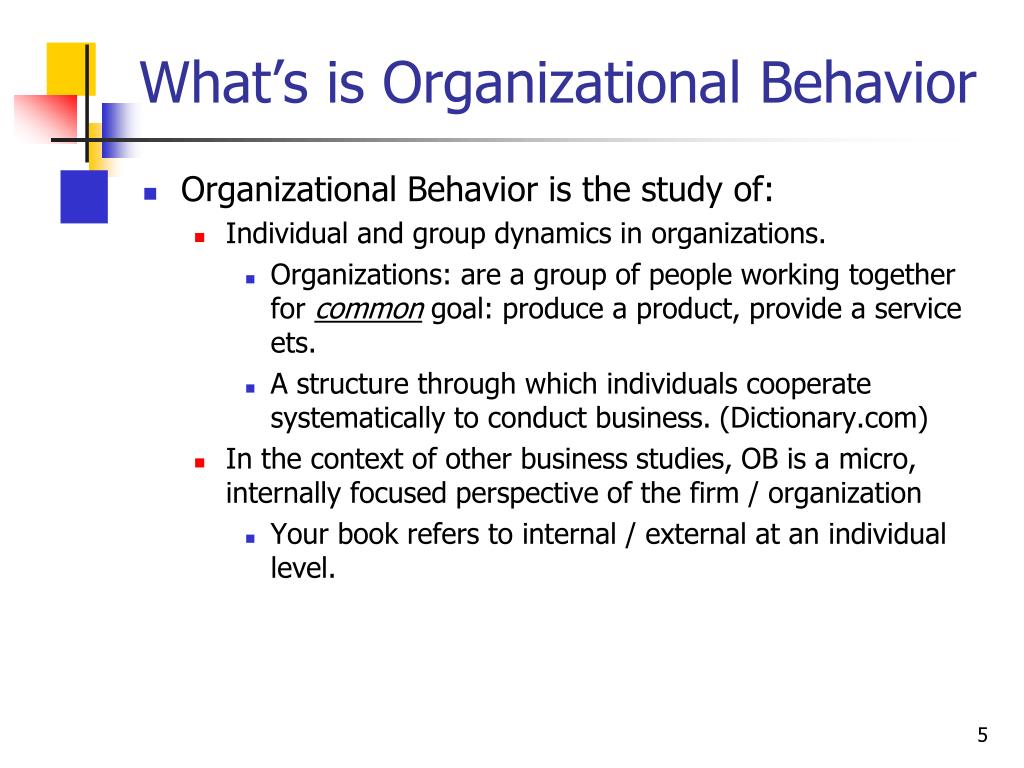
PPT 4327 Organizational Behavior (OB) PowerPoint Presentation, free download ID4332082
1 Organizational BehaviorGroup Dynamics and Teamwork 2 Sociological Criteria of a group Two or more freely interacting people (Interdependent -interact and influence each other) Mutually accountable for achieving common goals Common Identity Collective Norms. . 3 (No Transcript) 4 Groups versus Teams All teams are groups
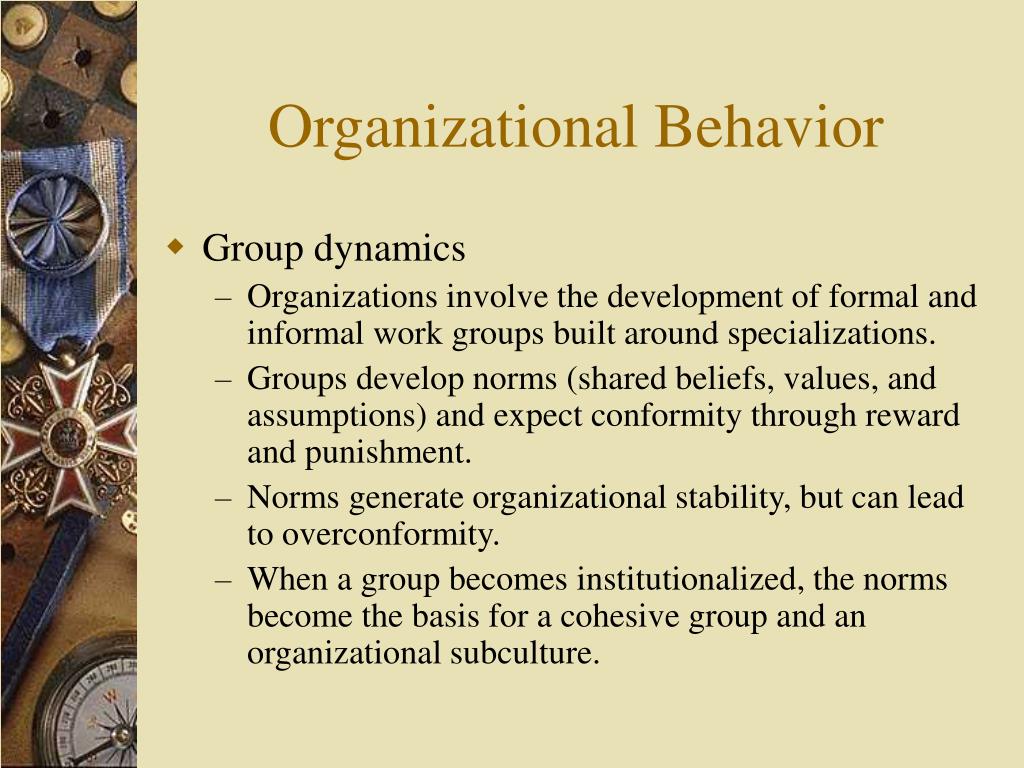
PPT Organizational Behavior PowerPoint Presentation, free download ID374445
Journal of Organizational Behavior, 33, 301-315, 2012.. The study also looked at group dynamics and whether crew consistency and well-defined positions played a role in patient survival.
GROUP DYNAMICS GROUP
Incorporate our intuitively designed Top 20 Organizational Behavior Presentation Templates and improve the effectiveness of the workplace.. This top-notch PPT Template is perfect to focus on the dynamics of groups within the organization, such as communication patterns, decision-making processes, and the formation of social structures..

Group dynamics online presentation
Understanding group dynamics allows you to better understand your team and maximize its potential. There are a range of different groups you might belong to. These are some of the most common: Product group — The collection of product people working within the same organization and driving product-focused activities.
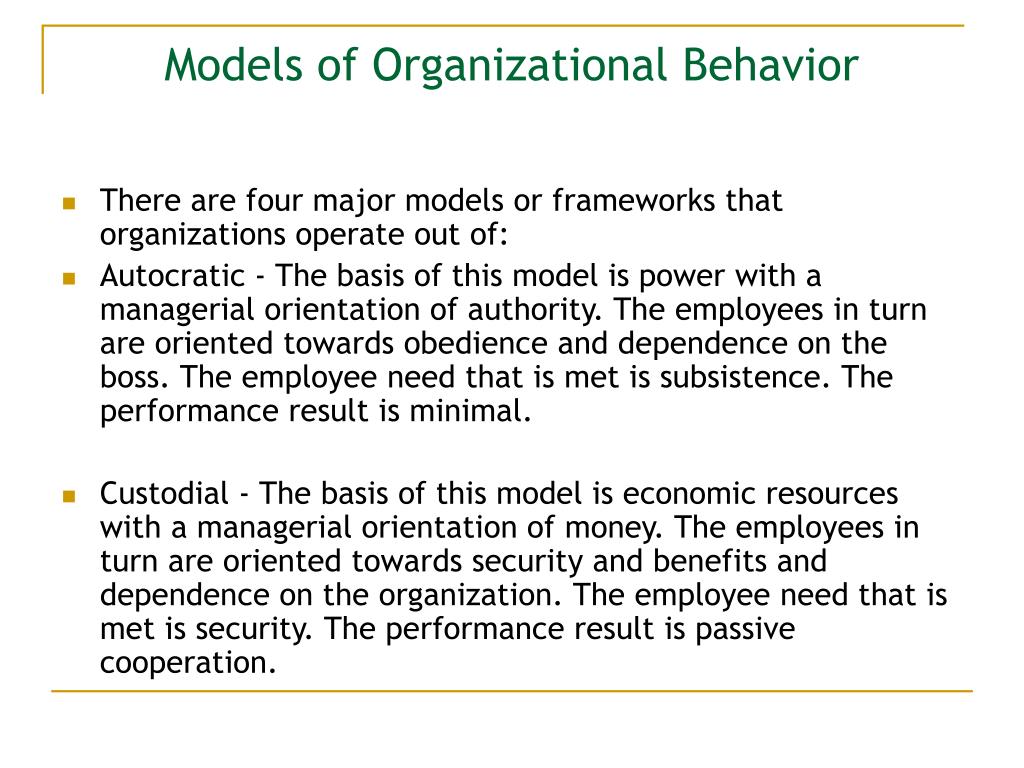
PPT Organisational Dynamics PowerPoint Presentation, free download ID685660
Download individual decks, below: Module 1: Introduction to Organizational Behavior. Module 2: Social Diversity in the Workplace. Module 3: Ethics in Business. Module 4: Individual Personalities and Behaviors. Module 5: Organizational Culture. Module 6: Motivation in the Workplace. Module 7: Managing Stress and Emotions. Module 8: Communication.
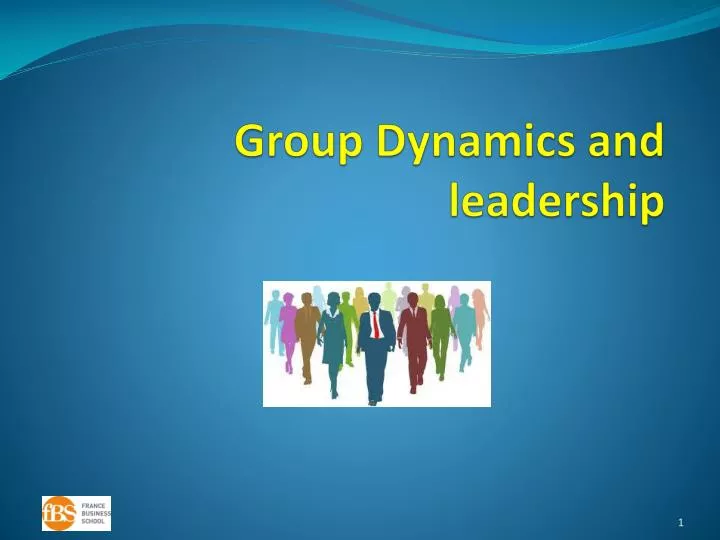
PPT Group Dynamics and leadership PowerPoint Presentation, free download ID2373102
Jan 12, 2022 • 0 likes • 878 views A Arushi Negi Healthcare professional, Public health professional Follow Healthcare Group dynamics and organizational behaviour Ppt on group dynamics 1 of 48 Download Now Save slide Save slide Recommended Group dynamics Deepthi.R M.S.N 63.7K views • 23 slides GROUP DYNAMICS Tanoj Patidar 355 views • 9 slides
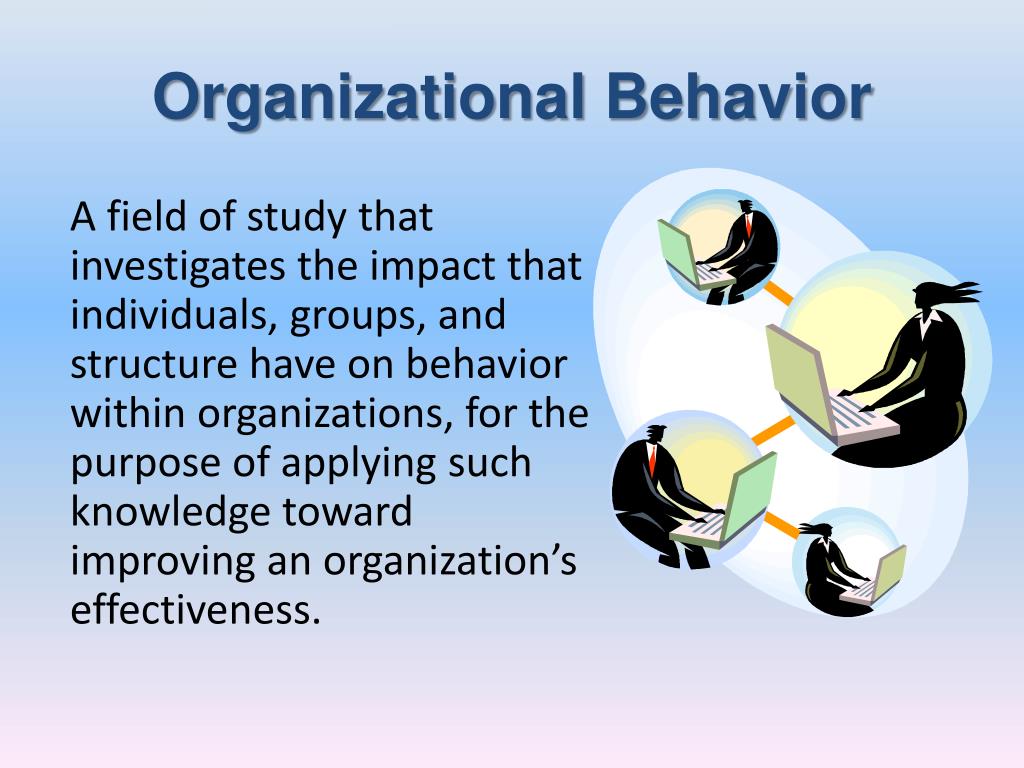
PPT What is Organizational Behavior? PowerPoint Presentation, free download ID5540780
Nature of Group Dynamics 6.2 NATURE OF GROUP DYNAmICS A group can be defined as several individuals who come together to accomplish a particular task or goal. It is an important sociological unit of analysis in the study of organisational behaviour. Group dynamics refers to the attitudinal and behavioural characteristics of a group.

Basic concepts of Group and Group Dynamics (PowerPoint presentation) YouTube
OB • Organizational behaviour is the study of both group and individual performances and activities within an organization. It examines the human behavior in the work environment and determines its impact on job structure, performance, communication, motivation, leadership, etc.

Organisational Behaviour Ppt Organizational Behavior Business Process
Sociological Criteria of a group • Two or more freely interacting people (Interdependent -interact and influence each other); • Mutually accountable for achieving common goals; • Common Identity; • Collective Norms. . Gholipour A. 2006. Organizational Behavior. University of Tehran Security Status What Makes People Join Groups?

Ppt Chapter 1 What Is Organizational Behavior Powerpoint ZOHAL
Six steps in order are defining the problem, identifying the decision criteria, allocating weights to the criteria, developing the alternatives, evaluating the alternatives, selecting the best alternatives.